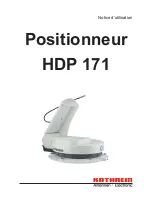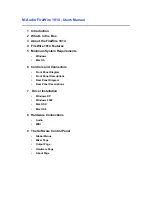
CURTMFG.COM
•
PRODUCT SUPPORT: 877.287.8634
•
70112-INS-RB
•
04/14/2020
•
ECN6926
•
PAGE 4
Step 5
Install the permanent safety cables (#3) and quick links (#7), looping them around the vehicle frame
and linking them to the tow bar base plate (#1). There must be one cable on each side of the vehicle.
Make sure the cables do not pinch or interfere with any hoses, wiring or other components.
See 'Installing the Permanent Base Plate Safety Cables' for additional information.
When ready to tow, install the tow bar mounting tabs (#2). When not towing,
insert the socket plugs (#8) into the ends of the tow bar base plate (#1).
Final Installed Image
SAFETY CABLE INSTALLATION
ADDITIONAL INFORMATION
Towing Tips
Check your equipment
Periodically check the condition of all towing equipment. Ensure all fasteners are tight and
that all structural components are sound. Do not tow with worn or damaged parts.
Vehicle manufacturer's recommendations
Review the owner's manual for your towed vehicle and towing
vehicle for specific recommendations, capacities and requirements.
Installing the Permanent Base Plate Safety Cables
When dinghy towing a vehicle with a tow bar, base plate safety cables should be used at all times.
In the event of a disconnect, the safety cables are designed to help prevent complete vehicle separation.
When installing the safety cables, use the illustrations below as a guide.
Installation guidelines
1. The cables must be connected to
the base plate and the vehicle frame.
2. Two cables must be installed.
3. Each cable must meet or exceed the
gross weight of the towed vehicle.
4. Make sure cables do not pinch or interfere
with hoses, wiring or other components.
Note:
Base plate safety cables are not a replacement for safety chains connecting the tow vehicle to the towed vehicle.
Baseplate
Baseplate
Quick link
Quick link
Permanent baseplate
safety cable
Permanent baseplate
safety cable
Convenience link
No convenience link






















